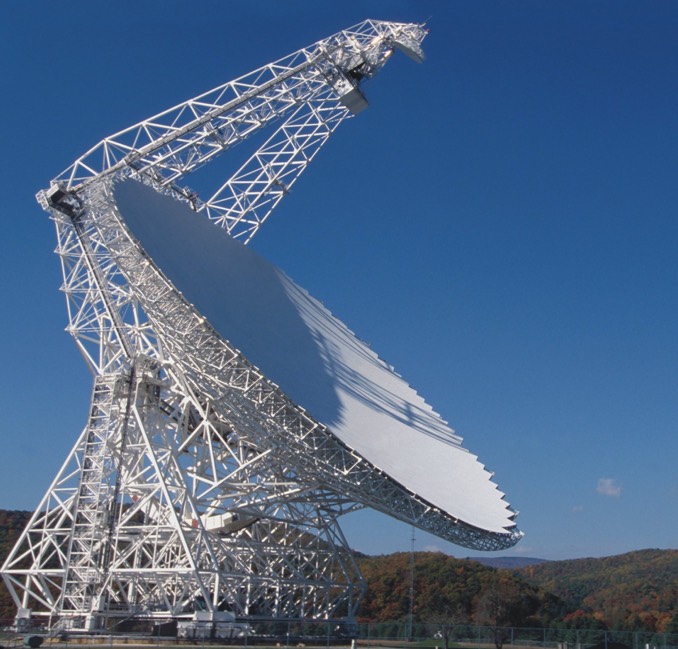
Using artificial intelligence algorithms, researchers with the Breakthrough Listen project, part of the search for intelligent life in the universe, or SETI, discovered 72 previously undetected fast radio bursts from a still-unknown source some 3 billion light years away.
Fast radio bursts are millisecond-range emissions originating in far-flung galaxies through an as-yet unknown mechanism. Possible explanations range from outbursts caused by gas falling onto highly magnetised neutron stars to signatures of advanced technology.
While fast radio bursts are typically observed only once, the body in question here – FRB 121102 – has emitted repeated bursts since its discovery in 2012. In August 2017, the Green Bank Telescope in West Virginia spent five hours “listening” to FRB 121102, collecting some 400 terabytes of data. An initial analysis using traditional algorithms revealed 21 fast radio bursts, all occurring within a one-hour period.
But a re-analysis of the data using a sophisticated AI algorithm developed by Gerry Zhang, a graduate student at the University of California at Berkeley, and his collaborators found an additional 72 bursts that escaped detection earlier.
“This work is only the beginning of using these powerful methods to find radio transients,” said Zhang. “We hope our success may inspire other serious endeavours in applying machine learning to radio astronomy.”
Andrew Siemion, director of the Berkeley SETI Research Center and principal investigator for Breakthrough Listen, said the research is exciting “not just because it helps us understand the dynamic behaviour of fast radio bursts in more detail, but also because of the promise it shows for using machine learning to detect signals missed by classical algorithms.”
“Whether or not FRBs themselves eventually turn out to be signatures of extraterrestrial technology, Breakthrough Listen is helping to push the frontiers of a new and rapidly growing area of our understanding of the Universe around us.”



